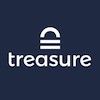Although we highly value the privacy of our personal information, very few of us actually bother to read the terms and conditions or privacy agreements thoroughly when they sign up for cloud storage platforms, such as Microsoft OneDrive or Google Drive. Generally, users tend to trust that tech companies will always be morally upright and respectful of data privacy. Unfortunately, nothing could be further from the truth.
Did you know that terms and conditions often allow such platforms to view, use and sell everything you upload? The gold standard for privacy in cloud storage is zero-knowledge approach, which means that your provider doesn’t store a copy of your encryption key, so the cloud storage service can’t decrypt your files. However, did you know that neither Microsoft OneDrive nor Google Drive offer this?
Choose the right cloud storage ecosystem for you
Most personal and business data is now stored and accessed through offshore servers located in dedicated data centers connected over the internet. Cloud storage service providers differ in storage space, data encryption and server infrastructure. Google Drive offers the largest free plan and the cheapest paid cloud file storage, while OneDrive offers a secure folder locked by an extra level of two-factor authentication.
However, in comparison, Singapore-based Treasure Cloud’s technology promises that your privacy is never compromised. You might be pleasantly surprised to know that Treasure Cloud offers up to 800GB of free cloud storage space.
How your personal data is (ab)used in the small print
Google’s attitude towards privacy has always raised eyebrows. Google Drive’s privacy policy states that it will “collect the content you create, upload or receive from others when using our services” and this includes emails, documents you create and comments you make on Google platforms like YouTube. Google states that it collects this data to provide better services as well as personalized ads, but it doesn’t explicitly state that your sensitive data might be available to Google employees and algorithms. Also, it’s Google, so you just know it’s most likely tracking everything you’re doing.
In comparison, Microsoft OneDrive is a little less intrusive. Its privacy policy states that it doesn’t “use what you say in email, chat, video calls or voicemail, or your documents, photos or other personal files to target ads to you” — no doubt to give users a false impression that they have some autonomy over their data. Nonetheless, its lack of zero-knowledge encryption means that Microsoft engineers can access your files whenever they want to.
By default, when signing into Windows with a Microsoft account, Windows has the ability to sync your settings and data with Microsoft servers containing information like your web browser history, favorites and sites you may have opened, along with saved app, website, mobile hotspot and Wi-Fi network names and passwords. However, users can deactivate this transfer to the Microsoft servers by changing their settings.
Microsoft’s updated terms also state that “we collect basic information from you and your devices, including for example ‘app use data for apps that run on Windows’ and ‘data about the networks you connect to.’ It would thus seem that Microsoft is basically granting itself the right to collect all the data from your devices and then share it, “as necessary”.
Microsoft’s updated privacy policy not only trespasses personal privacy, but can also affect your right to free speech, as the company states: “We will access, disclose and preserve personal data, including content of your emails, other private communications or files in private folders, when we have a good faith belief that doing so is necessary to”, “protect our customers” or “enforce the terms governing the use of the services”. What does that even mean if it doesn’t scream “data manipulation”? So much for transparency.

Your privacy is precious and so are your files
Real transparency starts with straightforward terms and policies that people can clearly understand, so that you and I know what’s going on with our data. In a world where data is often used without meaningful consent, platforms like Treasure Cloud give control back to users. Treasure Cloud is designed specifically with such privacy invasion issues in mind. Treasure Cloud promises user privacy upfront and actually works to protect users from data manipulation, as it works seamlessly with other storage platforms you may already be using, as opposed to services like Google Drive and OneDrive that have been known to upload and use your scanned data for their own purposes.
Treasure Cloud offers client-side encryption for all files saved on its platform, so unlike other cloud storage providers, Treasure Cloud can’t actually view or even open the data that you store on its platform. You are literally the only person who has access to your data, which might include sensitive recovery passwords.
There is no denying the fact that you have very little (if any) control over what such cloud storage companies can do with your data. With a provider like Treasure Cloud, you can rest assured that your data is completely secure and kept private, thanks to their zero-knowledge cloud storage and complete data encryption. Any data transferred from your existing accounts to your Treasure Cloud server becomes encrypted as well.
And there’s more! Earn great incentives on Treasure Cloud’s referral program, such as an additional 10 GB of storage on top of your existing plan for every person who signs up when you refer friends to sign up for a storage plan too! Click here for more information on the referral program.
Sounds too good to be true? Learn more about internet security and their services on Treasure Cloud’s website or their blog.
Note: Coconuts Media is not a financial services company, does not provide financial advice, and is not a qualified expert in the storage of digital assets—financial or otherwise. This article is part of a paid partnership with Treasure Cloud and is for educational purposes only.




